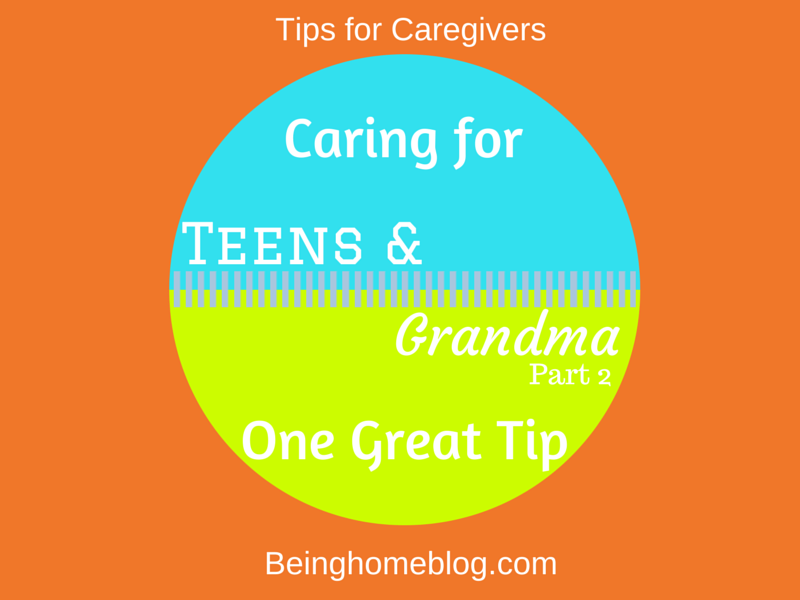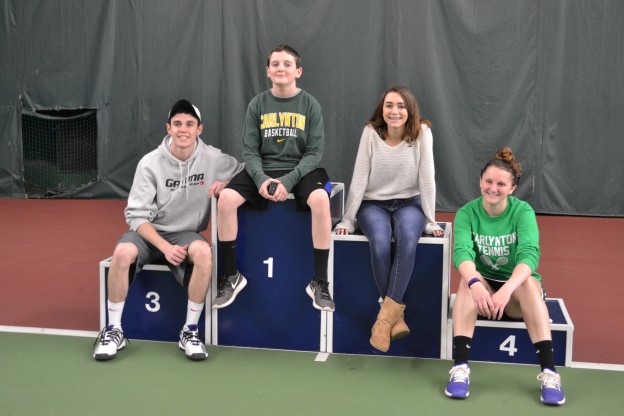
Inevitable Changes With a New Role of Caregiver
When you accept the role of primary caregiver for a sick or elderly relative, your family takes on the responsibility too. If you still have children at home, the addition can be both a blessing and a stress.
Children of all ages and stages can be notoriously self-oriented but having a human under the same roof who’s relatively helpless and vulnerable is a constant reminder NOT to think of themselves first. Even if the children aren’t responsible for the manual tasks of providing personal care, they’re on-call to provide companionship and attention and to help the person in other ways around the house.
It’s important to be sensitive to signals when the kids in the house are feeling the stress of the new situation. Even seemingly minor adjustments (like having to change where you sit at the dinner table) can trigger a meltdown when combined with the compounding changes like modifications to environment, schedule, routine, traditions, a likely increase in visitor traffic through the house, equipment in the home and possibly a shuffling of room assignments.
Best Advice To Date
The most profound advice I got was from a friend who took care of her dying mother in the last 6 months of her life. Stacey has 4 children about the same age as my own. When she learned that I would be caring for my aunt in our home, the only advice she gave was to attend and to drive my kids to as many activities as possible. I was surprised since transportation might be the easiest thing to delegate to friends and family members who want to help in this new situation but she was right.
Three Reasons This Advice Was So Great
1. Time and Attention is at a Premium
My (or my husband’s) presence at a game during an otherwise chaotic time provides a measure of security to the child, even if they’re unaware of it. My time is not my own and there’s less flexibility to make it theirs. Carving out time to spend time with any of the kids makes a difference. If you make this point non-negotiable with your family and support network, it creates some predictability in an otherwise unpredictable situation. Practices and games are usually scheduled well ahead of time which gives everyone plenty of notice that you’ll need help at home during those times.
2. Car Rides Can Be Quiet and Private
One-on-one time can be difficult to find and time in the car with you gives a kid a chance to talk about things that are on his mind. Even if you don’t talk about the subject of your new circumstances, it can help you gauge your child’s mood and pick up any underlying concerns.
3. A Mini Respite
Committing to this simple, routine chore forces you to physically remove yourself from your environment which allows you to decompress and take a break. Arranging time away from the house (and your added responsibilities) for other events might be a hassle so you probably have a tendency not to. Practices and games are relatively predictable so they’re also easier to plan for.
Whether it’s a 15 minute run to the field for a practice drop-off or sitting in the stands for a two hour game, the time can provide a much-needed but efficient respite for you since you’re also supporting your child.
Even if I’m not always able to arrange it, I’m grateful for my friend’s advice and believe it’s been key to keeping us all moving forward during a major change in the household.
I would love to hear your tips for caring for teens and a sick or elderly family member simultaneously.
This is part 2 in a series about caring for teens and a sick or elderly family member simultaneously. You can read part 1 here.





